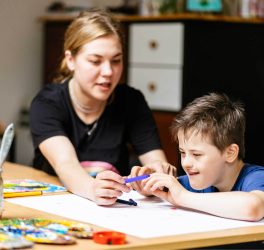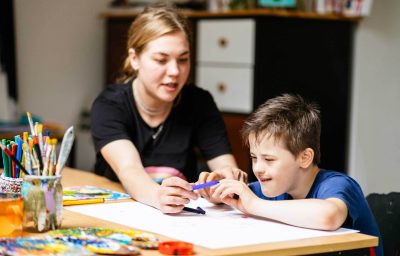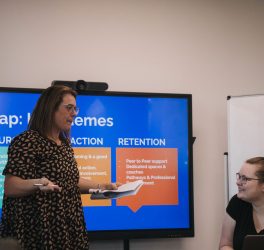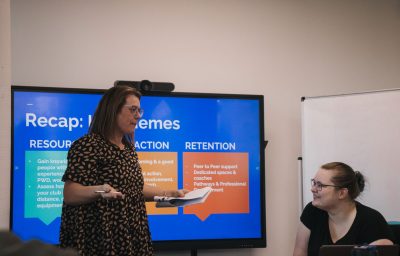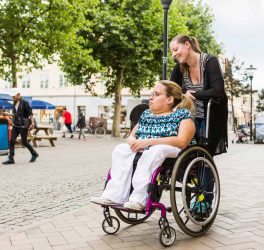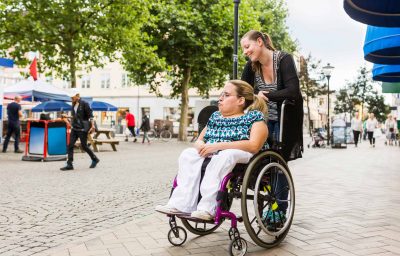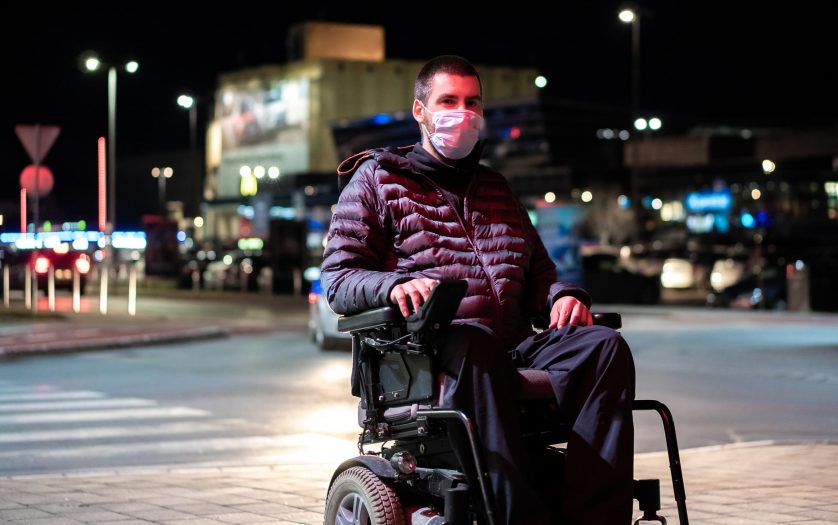
Disability advocates hold grave concerns that sluggish efforts to vaccinate people with disability in NSW will mean many disabled people now face sickness and death as the state starts to open up this week from COVID lockdown.
National peak disability advocacy organisation People With Disability Australia (PWDA) is calling on decision-makers in NSW and across the country to not lose focus as restrictions ease and redouble efforts to ensure that all NDIS participants, disabled people and other at risk individuals are prioritised for vaccination.
PWDA President Samantha Connor: “While many people think that a loosening of lockdown means the worst is over, the opposite is true for many people with disability because for them the worst is yet to come.
“People with disability are at greater risk of sickness and death if they get infected with COVID, but vaccination rates are still way too low for our community members to be protected now that the virus is being allowed to run free.
“The Victorian Government has recognised this and is to be commended by responding last week with $5 million of dedicated funding for vaccination programs specifically targeting people with disability.
“Other governments across Australia – and the NSW government in particular – also need to understand that putting at-risk people in further danger is unconscionable and must set vaccination targets and improve vaccination strategies for people with disability and their support workers to ensure people with disability can be safe.”
In addition, Ms Connor says there are serious issues which are NSW specific which must be addressed as a matter of urgency to ensure disabled people are not left behind and put at risk.
“These include issues around ‘special schools’, boarding houses, prisons and other state run facilities, as well as issues around ensuring people with disability have equitable access to health care and are not discriminated against or deprioritised. There are potential legal challenges ahead for state and territory governments if decision-making is not equitable, fair and responsive.”
Last week, the National COVID Vaccine taskforce reported that just over a third of NDIS participants, less than two-thirds of NDIS participants in shared residential accommodation and just over half of NDIS screened support workers have received two vaccine doses.
“However, these figures don’t include the hundreds of thousands of people with disability who live in residential settings, boarding houses, hospitals or other congregate settings. The vaccination status of these people is unknown.
“For NDIS participants aged between 12 and 15, the vaccination rate is just 4.8%.
“Another huge issue is the vaccination rates of disability workers. Taskforce data show only 59.3% of NDIS ‘screened workers’ are fully vaccinated. However, we estimate that ‘screened workers’ only make up around half of the disability workforce, which means the vaccination status of half our disability workforce is unknown.
Ms Connor says in most other countries, including the USA and the UK, programs ensured disabled people and those who are risk were vaccinated first.
“This has not been the case in Australia. In fact just last week the Disability Royal Commission released a report lambasting the deprioritisation of people with disability in Australia’s COVID response and urging governments to not ease restrictions until all people with disability have had the opportunity to be fully vaccinated.
“And rather than vaccine hesitancy, the barriers to vaccination that people with disability are experiencing – according to recent research by the National Disability Insurance Agency – are more likely to be caused by lack of support, lack of access and supply issues.
“So rather than victim-blaming people with disability, what we want to see is greater commitment by all governments to give people with disability the shot they deserve for a safe and healthy future.”
“We’ve developed a very clear 11 point plan to protect people with disability and we’re calling for all politicians, decision-makers and bureaucrats to uphold our rights and to urgently engage with disability representative organisations to make sure that people with disability don’t get left behind.”

